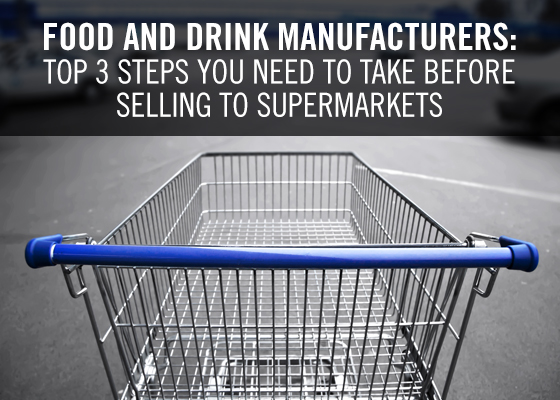Food and Drink Manufacturers: Top 3 Steps You Need to Take Before Selling to Supermarkets
Selling food and drink products to supermarkets is all about transparency – manufacturers whose systems can't cope with the new demands won't survive.

Selling to supermarkets in 2014 will be all about traceability. High-profile traceability failures have moved things on.
After the food scandals of last year, major retailers demand to know everything about the provenance of the products on their shelves, and simply having a long-term commercial relationship with them will no longer be enough.
In future, any food and drink manufacturer looking to retain its relationship with a major supermarket will have to address these three essential steps to transparency:
- Ensuring that it can provide the origin of all its ingredients and raw materials.
- Guaranteeing that every element of its data is accurate.
- Being able to track all of its products along the length of its supply chain..
So how can manufacturers satisfy these three new priorities?
Investing in technology to deliver traceability could prove crucial.
Graham Griffiths, West Midland chairman of the Chartered Institute of Logistics and Transport, has warned manufacturers:
“Investment in technology enabling this (traceability) is clearly imperative in this sector, and those who respond the fastest stand to be the biggest winners.”
Most manufacturers will find that, although their ERP system was originally bought for sales and finance-related benefits, it can add great value in the new operating environment, in terms of supplying data and ensuring coherent processes.
However, even major brands can forget to make sure that their system is still fit-for-purpose. For example, the famous spirits business, William Grant & Sons, decided to harmonise its systems after discovering it was using no fewer than eleven different ERP structures, scattered throughout its offices.
The three steps to ensuring transparency will define your future
If suppliers selling food and drink products to supermarkets wish to survive, let alone prosper, they have to demonstrate that they've genuinely embraced the need for full traceability. Supply Management's Marino Donati points out that the pressure for greater transparency is now coming from unlikely, but influential, sources.
“Nestle, Unilever and Coca-Cola have been urged to improve supply chain policies by Oxfam, as part of its Behind the Brands initiative.”
Investing in an ERP system, designed and installed by a developer with a demonstrable track record, will give far-sighted companies a clear chance to overtake rivals who are paying only lip-service to the new approach.
Things to think about:
- In 2014, manufacturers whose internal systems can't cope with meeting the three steps to transparency may find themselves not only losing existing contracts, but struggling to win new ones.
- Are you genuinely committed to optimal standards of transparency or just seeking to meet basic requirements?
- Can your current ERP system meet the new demands of supermarket selling, or could investing in new technology give you a competitive edge?
Topics: Selling to Supermarkets




